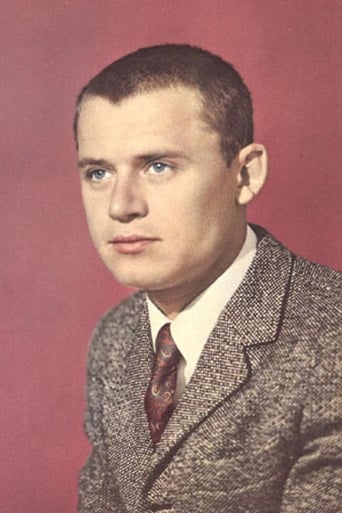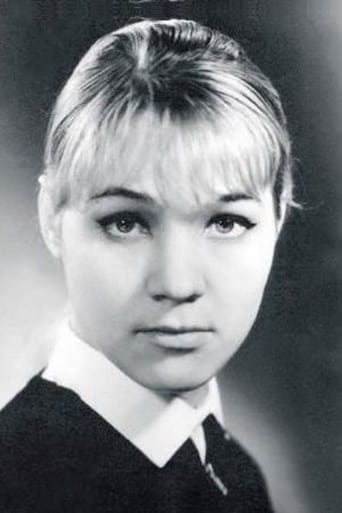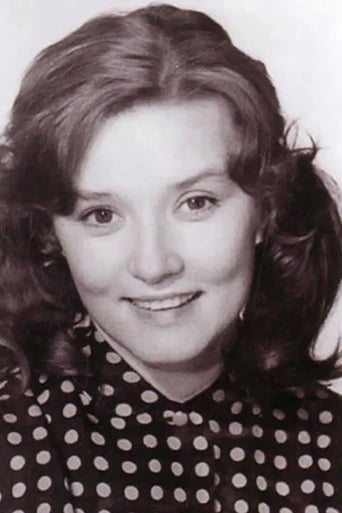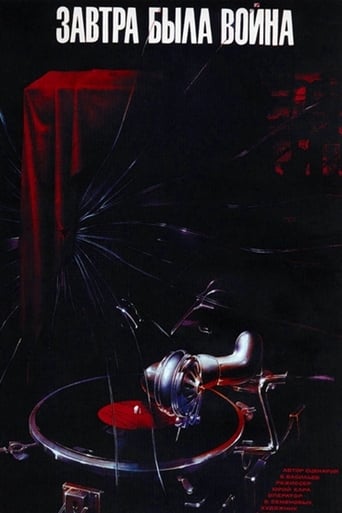
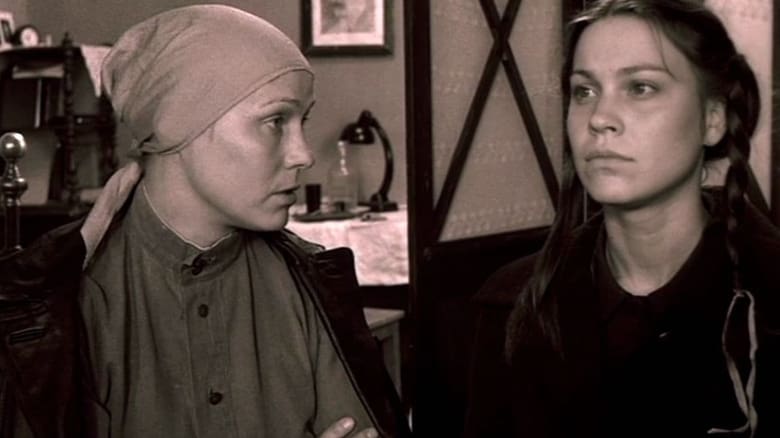
Tomorrow Was the War (1987)
This movie is based on a novel by Boris Vasiliev and describes life in a small Russian provincial town in 1940 - one year before Germany invaded the Soviet Union. The main characters of the film are ordinary Soviet high school students. They study in the Soviet school, try to be correct and ideological Komsomol activists. But not always the “correctness” suggested by the teachers coincides with the inner convictions of young souls - it is difficult for them to come to terms with the fact that their relatives and loved ones are suddenly “enemies of the people”.
Watch Trailer
Cast
Reviews
Simply A Masterpiece
One of my all time favorites.
Charming and brutal
Amateur movie with Big budget
This is surely not my opinion but the party line as told in the movie when Essenin's poem is read ! This benign event is the spark to dramatic ones : arrest of a helpful single father as a people enemy and the consecutive suicide of the daughter ! As it's happens with students who seeks their identity in a rigid school system, softened by an inspired newcomer, well you meet again all the themes of Dead Poets society ! So, as in space, Soviets were there first ! Maybe the great difference here is that the women who have the spotlight as friends in school, as director, as mothers...This critical movie set before the great patriotic war is from 1987 and i suppose that without Perestroika, it could never had been released ! Anyway, it's good to rejoice with sweet and cute Natalia : in a way, she reminds me a bit of Noomi Rapace, except that she is more lively and friendly. This plunge into Russian films is particularly interesting as it's always new experiences with unseen places, people It's great to see that outside west, there is also quality and moving works as we can believe there is nothing else.. If your medias don't recommend it, i urge you to find it and you will be filled with smiles, cries and reflections
This was a touching and a subtle film. Made a few years before the end of the Soviet Union and set at the cresting height of Stalin's power (and, as the title suggests, just before the looming World War), it manages the trick of being at the same time both nostalgic for a bygone time and the youths who lives through it, but also unflinching about the horrors that the political environment caused people to commit against each other. I don't know for sure and I haven't read the story that was the basis for the film, but I get the strong feeling that it was at least semi- autobiographical on the part of the author, and everyone involved in the film does a strong job of communicating his mixed feelings of affection and horror for that time. The photography alternates between sepia monochrome (usually at school) and color (at home or out in nature), and it's the first time I've seen this trick used in a way that works not only well but also subtly -- it underscores in an understated way the themes that the film raises of humanity, freedom, and choice versus duty to the state. While it raises these themes, it scrupulously manages to avoid being didactic about them. We are allowed to draw our own conclusions on what the characters discuss, which is pointedly what they themselves are not allowed to do. Touchingly, it becomes clear that those who are drawn in to acting so in humanly do so because the ideals of the revolution that they fought for are so dear to them that they cannot bear to imagine it betrayed. In one touching moment we are reminded that it was Lenin himself who warned against a black-and-white, right-or-wrong definition of what the truth is, and it painfully obvious that that is not at all the philosophy that has been enacted in the state that pays him service.
I never expected to be so impressed by this picture after reading the description. I often avoid to read reviews before watching the film in order to have my own uninfluenced opinions. This movie is like a thorn which you just stepped in. It's about the freedom, of having questions, wanting to find the truth and the repercussions of these in a Stalinist regime. The alternation of black and whit with the colored picture show exactly what I was saying: the difference between liberty, happiness shreds and marginal thinking, but also the difference between a great intellect and a small-minded one. The music in the film is also great, achieving a perfect conjunction with the images and the surroundings, the society. It's also a perfect explanation of the presumption of innocence and how society arrives to judge in advance, disregarding the collateral damage.
There are movies, which i don't have the wish to see second time, because the first impression was so deep and insightful, that the second time raise the fear that it could disturb what I gained from the first one. And this movie gives much, too much, question after question, where no answer is absolute. It is movie about The Life, about the wish to live and about the fear of it. It describes the life of some young Sowjets before the break of the Nazi invasion, where the Sowjet presence is depicted with the real touch of emotions. As a typical Sowjet (Russian) movie the feeling and the play of the actors dominates, but because of the confrontation between young and old, in between the young ones and the old ones, there is no single cadre, which gives me a second of time to relax and I jump form one personage into another. I think that it is amazing how this feeling drama, succeed to overcome the tragedy of the situation, of its fearful environment and to glorify the Human. Somehow there is no trail of judgment, but the actors' play resolve it in the endless search for happiness of their personages. There many strong movies showing what human do to other human, this movie shows us what one can do to it self. Just the end is a bit of pathetic, but it is the true end, unfortunately, where the unification is matter of the death.
